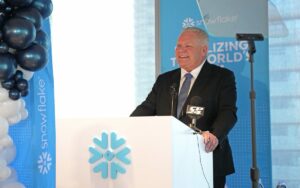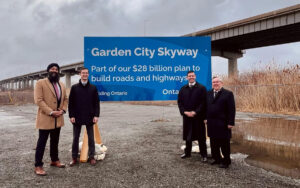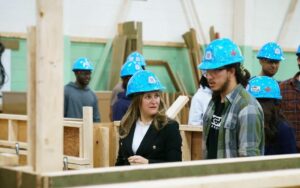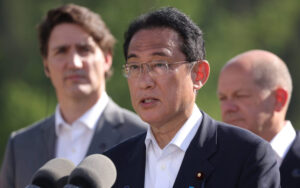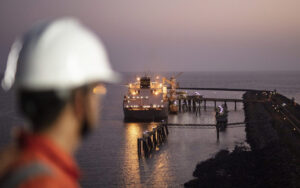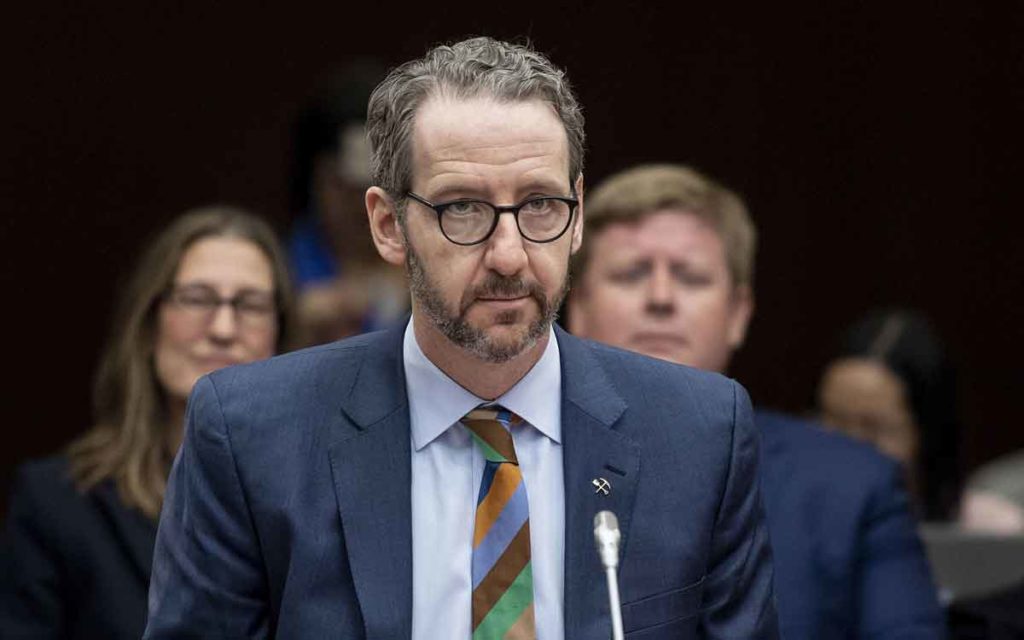
Gerald Butts has resurfaced in Ottawa as a member of the Task Force for a Resilient Recovery.
Gerald Butts has resurfaced in Ottawa as a member of the Task Force for a Resilient Recovery. This is a group that has tasked itself to review the Resilient Recovery Framework document, and then report into the federal government a recovery plan to support Canada’s 2030 and 2050 climate goals. The Task Force’s primary goal is to develop “actionable recommendations on how governments can help get Canadians back to work while also building a low-carbon and resilient economy.”
The Resilient Recovery Framework that the Task Force is reviewing is a document that was submitted to the group the very day it came into being, authored by the Smart Prosperity Institute of the University of Ottawa – the same institute that is listed as a research arm of the Task Force. (Does this not beg the question how the Task Force will maintain its objectivity assessing the Institute’s work while employing Institute researchers?)
On the Task Force’s website www.recoverytaskforce.ca it encourages Canadians to get to know “our insights and recommendations for government” by highlighting (who else!) leading experts from the Smart Prosperity Institute, the International Institute for Sustainable Development (the second research arm of the Task Force) and a news magazine Corporate Knights which is “The Voice for Clean Capitalism” with a mission to advocate for a “green recovery” by promoting “a green renovation phase.” It appears the Task Force has a limited scope, drawing from its own research bodies and a sustainable industry publication dedicated to advancing social and environmental sustainability worldwide.
The Resilient Recovery Framework sets out the criteria for Canada’s best recovery investments. It states: “When Canada turns the corner on the COVID-19 health crisis, the nation will make a once-in-a-generation investment in economic recovery. That investment needs to kick start growth and jobs right away, while also continuing Canada’s progress toward building a stronger, cleaner economy.” In the document’s executive summary it indicates its focus on “a decarbonized and digitized world” steering the government towards “Canada’s natural capital and low-carbon future.”
The document poses three key questions to assess investments: 1) Does the measure stimulate timely, lasting economic benefits and jobs? 2) Does the measure help the environment and support clean competitiveness? 3) Is the measure equitable, implementable, and feasible? Drilling down to the next level, it is noted that investments are to show economic benefits in a timeframe of 6-18 months, meet Canada’s climate change targets, and have a positive or at least neutral impact on vulnerable, marginalized or underrepresented groups, such as Indigenous peoples and women. (PMO staff might not have been able to write a better criteria for this Liberal Government to use.)
This is all part of what veteran financial columnist Terence Corcoran calls “The “’resilience” ploy to seize the economy.” The hidden agenda has been “to lift economy out of deep lockdown hole politicians threw us into by having the same politicians take control and re-engineer the whole system.” In a May 27 Financial Post article, Corcoran explains the global environmentalist branding exercise:
“Resilience is the post-COVID-19 replacement for sustainable (117,000,000 Google results). In pre-pandemic economic policy terms, sustainable development called for a rethink of global, national and local economic objectives. The United Nations’ 2030 Sustainable Development policy goals describes the agenda as “ending poverty and other deprivations must go hand-in-hand with strategies that improve health and education, reduce inequality, and spur economic growth — all while tackling climate change and working to preserve our oceans and forests.” These sustainable development objectives are identical to those of the global resilience movement. The only difference is the label.”
The resilience movement and its warriors also have a new rally cry — as Canadians will come to recognize from multiple Corporate Knights articles, Task Force interviews, and CBC headlines: this orchestrated green recovery from COVID-19 is going to help Canada “build back better.” Euphemistically, to build back better is to “green the energy supply”, “tap into Canada’s renewable cornucopia”, and “to establish a reference level for a carbon-free generation in Canada.”
There have been clarion warnings about the political maneuvering of Gerald Butts, the Task Force for a Resilient Recovery, and its cadre of environmental lobbyists and green business interests. Former Liberal MP Dan McTeague warns “Gerald Butts and Bruce Lourie are two folks well on their way to bankrupting Canada.” Jocelyn Bamford, president of the Coalition of Concerned Manufacturers and Businesses of Canada, warns that the PM’s green energy plan will bankrupt us as “it is built upon the same priority as the one pushed by former Ontario premiers Dalton McGuinty and Kathleen Wynne.”
Trying to get ahead of the resilience movement’s likely investment recommendations, Calgary Sun columnist Lorrie Goldstein flatly stated: “As the global economy struggles to recover from the recession caused by COVID-19, what we don’t need are more wind turbines and solar panels.” In the Financial Post, Canada’s former finance minister Joe Oliver assessed that the Trudeau Liberals are worsening the countries fiscal problem: “Canada has the dubious distinction of being the only country rich in energy resources whose government’s policy is to keep most of its wealth buried forever.”
Then there is Gwyn Morgan, the retired founding CEO of Encana Corp, who in a recent C2C Journal article stated: “No other country has so deliberately turned itself into a climate-change martyr. And yet for all the economic, social and national unity pain inflicted, our sacrifices will have no perceptible impact on global climate change. Entering the third decade of this troubled millennium, we can only hope our federal government somehow realizes the future of our Confederation requires leaving behind blind ideology and finding some basic common sense.”
Still Gerald Butts and the Task Force are on track in July to bring forward recommendations for recovery investments so that the Liberal Government can champion a resilient recovery that will ensure Canada will “build back better.” And with Parliament suspended, who is there to speak up and hold Butts, PM Trudeau, and their resilience warriors to account?

Chris George is an advocate, government relations advisor, and writer/copy editor. As president of a public relations firm established in 1994, Chris provides discreet counsel, tactical advice and management skills to CEOs/Presidents, Boards of Directors and senior executive teams in executing public and government relations campaigns and managing issues. Prior to this PR/GR career, Chris spent seven years on Parliament Hill on staffs of Cabinet Ministers and MPs. He has served in senior campaign positions for electoral and advocacy campaigns at every level of government. Today, Chris resides in Almonte, Ontario where he and his wife manage www.cgacommunications.com. Contact Chris at chrisg.george@gmail.com.










